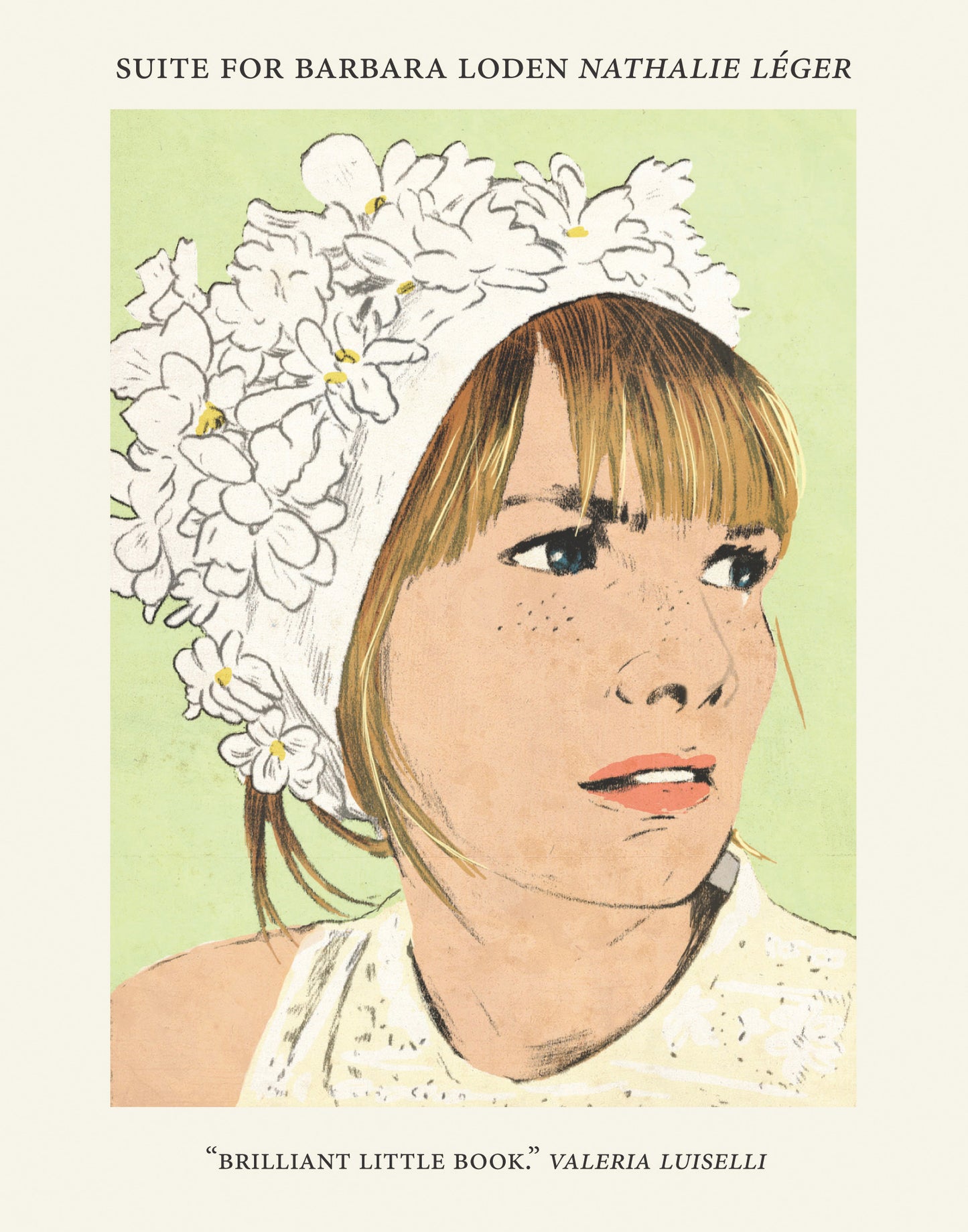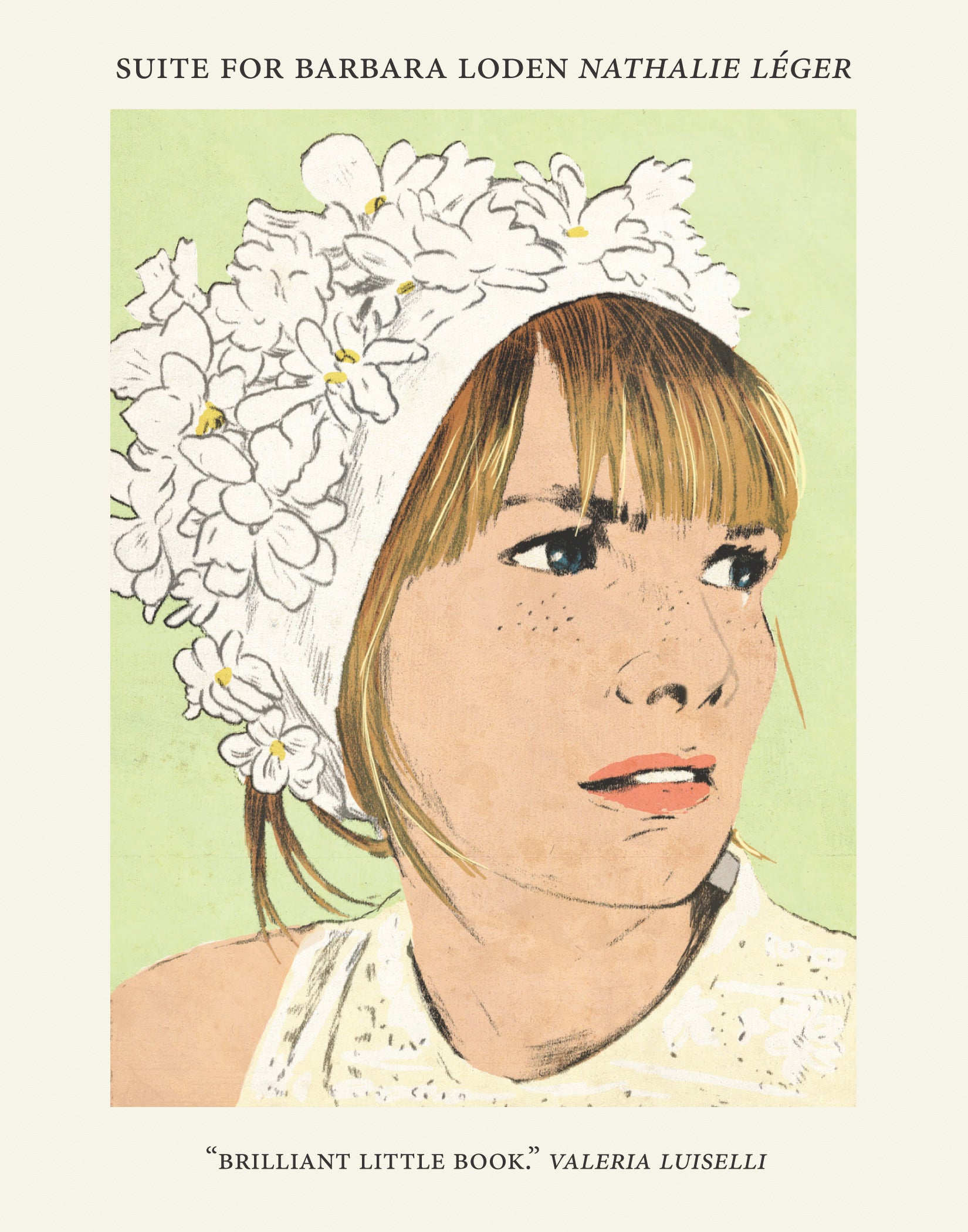With mirrors and lenses, with echoes and silences, Léger’s books suggest that we may write and perform the stories of our lives, but our roles have also been written for us, and have already been performed by other women, whose experiences we may recognize as our own. In the end, the most original performance here is Léger’s, and it is undeniably virtuosic.
—Eula Biss, The New Yorker
In Léger’s hands, desolation can reveal a woman in all her multiplicity—in her ugliness and abasement and determined self-destruction, seemingly ground down to the nubs of her sorrow, but ultimately emerging with a strange richness, full of haunted persistence, droll knowingness, untamed desires, and hardscrabble resilience.
—Leslie Jamison, Bookforum
Here, now, is a remarkable new book that does everything—biography, criticism, film history, memoir, and even fiction, all at once, all out in front. . . . In her combination of the conversational and the incantatory, the fragmentary and the infinite, Léger captures something of [Marguerite] Duras's own tones and moods, yet her approach to Loden and her appreciation of Wanda are entirely her own.
—Richard Brody, The New Yorker
Assigned to write the entry about Wanda (1970), Barbara Loden's art-house movie, for a film encyclopedia, Léger let herself get lost. The result gracefully melds criticism, fiction, and autobiography, and is a powerful example of how summary, channeled through the most personal of perspectives, can be a form of art.
—Christine Smallwood, Harper's
Inventive and affecting, it takes both the novel and the biography to new and interesting places.
—Eimear McBride
Brilliant little book.
—Valeria Luiselli
Léger’s vigorous work consistently satisfies, with ideas crystallizing with the clarity of a photograph.
—Publishers Weekly
I’ve just re-read Suite for Barbara Loden by Nathalie Léger, translated by Cécile Menon and Natasha Lehrer, as well as the two forthcoming books that form a trilogy with that one: The White Dress, also translated by Lehrer, and Exposition, translated by Amanda Demarco. All three defy categorisation—history, essay, memoir, fiction. I admire the wholeness and agility of these works very much.
—Catherine Lacey
This trilogy feels more than a feminist recovery of narrative: it is a method through which the lives of women artists are reimagined and remade through the writer herself, a mode of hospitality in which lives coalesce and transform one another.
—Katie Da Cunha Lewin, The White Review
Highbrow but highly readable.
—ELLE (France)
The word triptych, not trilogy. Because the books are not a straight line. The books scoff at straight lines, reveal how any line can look straight if you’re zoomed too far in. The books are not discrete episodes, they are all one thing, they are all one project.
—Kyle Williams, Full Stop
With ferocity and pathos, Léger enters into a standing-with relationship with these other women only to realize she’s been in touch with herself the entire time. This feels to me like the natural movement of the most revelatory art criticism—to move close to the work, to ride along then pierce the work’s textured surface into its mysterious netherworld then looping back out (through innards) towards these words you hear out there in the private distance only to find them coming from your own mouth. With all of these women—Countess of Castiglione, Barbara Loden and Wanda (and Alma H. Malone), and Pippa Bacca—Léger comes to know them as women who lived rich lives, artists’ lives, intensely felt.
—Jay Ponteri, Essay Daily
The suffocating interpolations of being a woman have concealed the words of so many: Pippa Bacca, whose seemingly naive project is now bound to her rape and murder; American actor and director Barbara Loden, whose project of semi-autobiographical film Wanda details the listlessness of life for the 1970s American housewife; The Countess of Castiglione, whose hope had been to exhibit her photos at the upcoming 1900 International Exposition; and Léger’s own mother, whose words "too have been hidden away." The triptych not only unearths the lost narratives of noted women; but more significantly the writers’ reckoning with her own mother—"I never helped her, I never stood up for her"—suggests that the triptych’s aim is to give voice to one woman: her mother.
—Clancey D’Isa, Chicago Review of Books
Now that all three books exist in English thanks to Dorothy Project and exceptional translations by Natasha Lehrer and Amanda DeMarco, it feels as if the stakes have been tripled. Though each book is a case study of a particular woman’s life, the neat boundaries of these subjects aren’t meant to hold. "On the winding path of femininity," Léger writes, "the loose stone you stumble over is another woman." These slippages are part of the danger and excitement of Léger’s work—look long enough at another woman, and you may find yourself looking in a mirror.
—Laura Marris, On the Seawall






